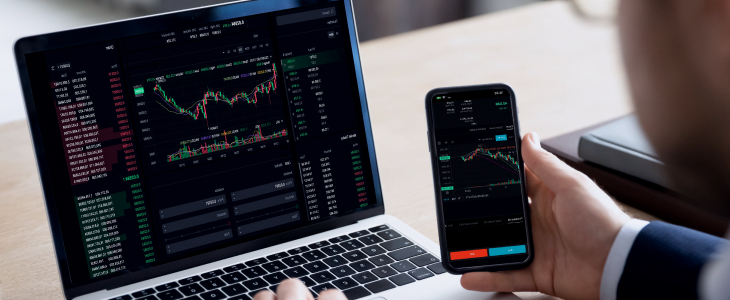
Exploring Career Opportunities in Forex Trading
The forex market, known for its high liquidity and volatility, offers a plethora of job opportunities for individuals interested in trading and finance. Whether you’re an experienced trader looking to advance your career or a newcomer wanting to enter the world of forex, understanding the job landscape is crucial. There are various roles available that cater to different skills and experiences—ranging from trading positions to analytical roles. If you’re eager to learn more about these opportunities, you might want to check out forex trading jobs trading-asia.com, a valuable resource for aspiring forex traders.
Understanding the Forex Market
The foreign exchange market, or forex, is the largest financial market in the world, with a daily trading volume exceeding $6 trillion. It operates 24 hours a day, five days a week, facilitating currency exchange for businesses, investors, and speculators. Traded pairs such as EUR/USD or USD/JPY allow investors to speculate on currency fluctuations, making forex trading a dynamic career choice.
Types of Forex Trading Jobs
There is a wide range of jobs available in the forex sector, catering to various interests and skill sets. Here are some of the most common roles:
1. Forex Trader
Forex traders buy and sell currency pairs in the hopes of making a profit. They use various strategies—technical analysis, fundamental analysis, or a combination of both—to make informed decisions. This role requires a deep understanding of market dynamics, risk management, and trading platforms.
2. Forex Analyst
Analysts focus on evaluating market trends and economic indicators to provide insights that can inform trading decisions. This position often involves extensive research, data analysis, and the ability to interpret complex financial information.
3. Risk Manager
Risk managers are crucial for forex trading firms. They assess potential risks related to currency trading and implement strategies to minimize losses. This role requires strong analytical skills and a comprehensive understanding of risk management frameworks.

4. Financial Advisor
Financial advisors guide clients on trading strategies and investment choices. They must possess excellent communication skills and a deep understanding of the forex market to provide well-informed advice tailored to an individual client’s financial goals.
5. Compliance Officer
Compliance officers ensure that trading firms adhere to regulations and ethical standards. Their role is critical in maintaining the integrity of the forex market and requires a comprehensive knowledge of legal frameworks governing trading activities.
Skills Required for a Career in Forex Trading
To excel in the forex trading landscape, individuals must cultivate a blend of technical skills, analytical abilities, and personal attributes. Here are some key skills that prospective forex professionals should aim to develop:
Analytical Skills
Forex professionals must analyze market trends and data, enabling them to predict price movements and make informed trading decisions. Strong analytical skills are essential for identifying patterns and assessing risks effectively.
Technical Proficiency
Familiarity with trading platforms and software is imperative. Traders need to utilize various tools and programs for charting, data analysis, and order placement efficiently.
Risk Management
A comprehensive understanding of risk management strategies is crucial in minimizing losses and maximizing profits. Successful traders often have well-defined risk management plans in place.

Emotional Resilience
Forex trading can be a rollercoaster ride emotionally, with significant ups and downs. Traders must develop emotional resilience to make rational decisions, especially during high-pressure situations.
How to Get Started in Forex Trading
If you’re considering a career in forex trading, here are some steps to help you get started:
1. Education
Gain foundational knowledge through online courses, books, and forums. Understanding the basics of currency trading, market mechanics, and strategies is essential before stepping into the trading arena.
2. Practice Trading
Many trading platforms offer demo accounts to practice trading without financial risk. Use demo accounts to hone your skills, test strategies, and become familiar with trading software.
3. Network
Participating in forex forums, attending trading seminars, and connecting with industry professionals can provide invaluable insights and expand your professional network.
4. Apply for Jobs
Once you’ve built a solid foundation, start applying for entry-level positions or internships in the forex sector. Gaining hands-on experience is essential for your growth.
Conclusion
The realm of forex trading presents a wealth of career opportunities for those willing to invest time and effort into learning the intricacies of the market. From trading to analysis and compliance, there is a path for everyone. By acquiring the necessary skills, networking effectively, and gaining practical experience, you can carve out a successful career in this dynamic industry. Embrace the challenges and rewards that forex trading offers, and you may find it to be a fulfilling professional journey.





發表迴響
抱歉,你必須要登入才能發表迴響喔!